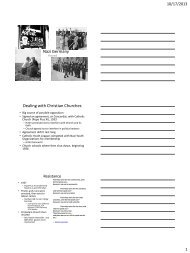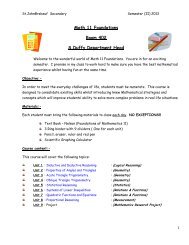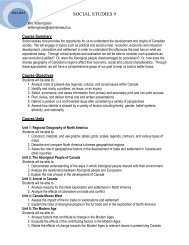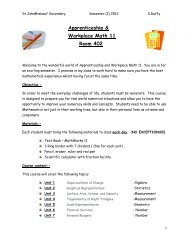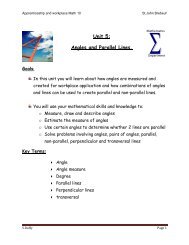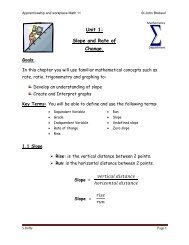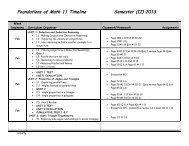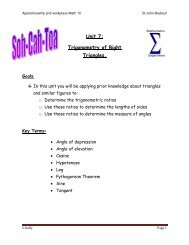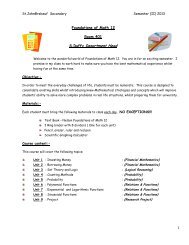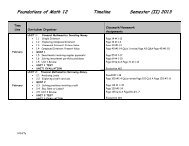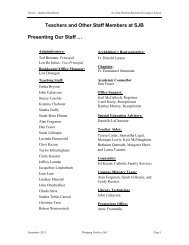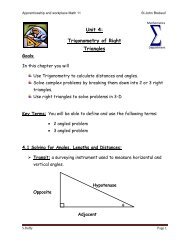HMA Piers Ploughman page 51 - St John Brebeuf
HMA Piers Ploughman page 51 - St John Brebeuf
HMA Piers Ploughman page 51 - St John Brebeuf
You also want an ePaper? Increase the reach of your titles
YUMPU automatically turns print PDFs into web optimized ePapers that Google loves.
<strong>Piers</strong> <strong>Ploughman</strong> (p. <strong>51</strong>) Name_________________________<br />
Very few people cared about the poor in Medieval England and the lifestyle of peasants was harsh with no<br />
structured support services available to them if things went wrong - though a local monastery or convent might help<br />
though this depended on the abbot or mother superior in charge.<br />
This is a poem called "The Crede of <strong>Piers</strong> the <strong>Ploughman</strong>". It was written by William Langland about 600<br />
years ago. It must be remembered that few people could read or write when Langland lived, so very few people<br />
would have read this poem.<br />
N.B.: <strong>Piers</strong> Plowman has often been read primarily as a political document. In an 1894 study, J. J. Jusserand was<br />
primarily concerned with what he saw as the poem's psychological and sociopolitical content—as distinct from the<br />
aesthetic or literary—in a dichotomy common to all modern humanistic studies. Four years later Vida Dutton<br />
Scudder compared the poem with socialist ideas from the works of Thomas Carlyle, <strong>John</strong> Ruskin, and the Fabians.<br />
-exerpt from: http://en.wikipedia.org/wiki/<strong>Piers</strong>_Plowman<br />
"As I went on my way,<br />
I saw a poor man over the plough bending.<br />
His hood was full of holes,<br />
And his hair was sticking out,<br />
His shoes were patched.<br />
His toes peeped out as he the ground trod.<br />
His wife walked by him<br />
In a skirt cut full and high.<br />
Wrapped in a sheet to keep her from the weather.<br />
Bare foot on the bare ice<br />
So that the blood flowed.<br />
At the field’s end lay a little bowl,<br />
And in there lay a little child wrapped in rags<br />
And two more of two years old upon another side.<br />
And all of them sang a song<br />
That was sorrowful to hear.<br />
The all cried a cry,<br />
A sorrowful note.<br />
And the poor man sighed sore and said<br />
"Children be still."<br />
Questions<br />
1. In your own words but using the poem, describe what the life of the poor was like according to William Langland.<br />
2. This is a sad poem. Which words and phrases make it sad?<br />
3. Using your knowledge of the poor, is this poem by Langland accurate? Explain your answer.
4. One writer from Medieval England called life then "nasty, brutal and short". Does the poem by Langland agree<br />
with this description? Explain your answer.<br />
Page from the 14th-century Luttrell Psalter,<br />
showing drolleries on the right margin and<br />
a ploughman at the bottom First edition manuscript of the front <strong>page</strong>




